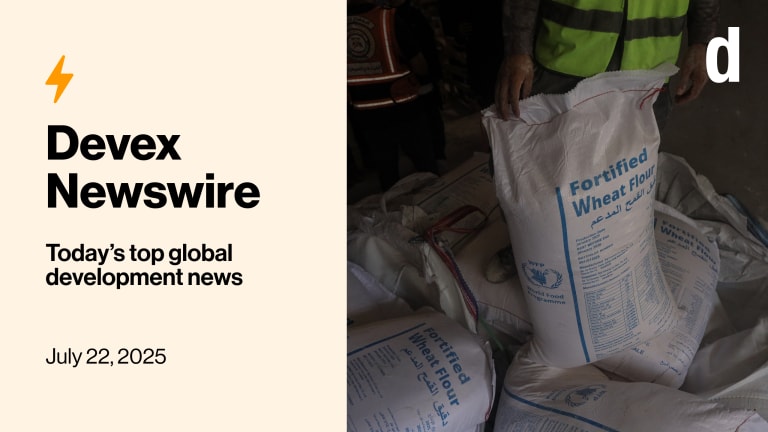
There is enough food in the world to feed everyone. Yet 1 billion people go to bed hungry every night, each year 2.3 million children die from malnutrition, and women are more likely to go hungry compared to men.
While we are making important progress on many key development challenges, we simply aren’t making similar rates of progress on hunger. Food prices are at a peak and set to rise further, hitting poor people hardest.
Some countries have made enormous strides toward reducing hunger. The proportion of hungry people in Ethiopia fell from nearly two-thirds to under half, and in Malawi from 45 percent to 23 percent, in just a decade. But the world as a whole is failing badly. We promised at the millennium that by 2015 we would halve hunger, but there is little prospect of keeping that promise.
The solutions are about changing the conditions which currently mean that too many poor people do not have enough food. This is about enhancing poor people’s access natural resources like land, and improving governance so that investment leads to everyone getting enough food. It is about transparency to ensure that companies pay the taxes due to developing countries — helping these countries to mobilize more of their own resources in the fight against hunger — and so that poor people can hold companies and governments to account. It is about increasing investment to tackle malnutrition and supporting countries with high levels of malnutrition.
With a crisis like this comes the opportunity to create change.
This year, the United Kingdom is chair of the G-8. The United Kingdom will reach its historic promise of spending 0.7 percent of gross national income on aid and the world will begin to debate a new set of development goals which will set the ambition and vision for the next decade. A coalition of more than 200 U.K. organizations launched the Enough Food For Everyone IF campaign in January calling for action by G-8 leaders to tackle the causes of hunger and save millions of lives:
Give enough aid to stop children dying from hunger and help the poorest families feed themselves.
Stop big companies dodging tax in poor countries.
Stop poor farmers from being forced off their land and grow crops to feed people, not fuel cars.
Force governments and big companies to be honest and open about their actions that stop people getting enough food.
(Full recommendations can be viewed here),
The G-8 could put in place new standards giving everyone access to information on who really owns companies, and giving developing countries access to information on their citizens holding bank accounts in tax havens, ensuring these countries can collect the revenues they are due and invest in hunger reduction for their citizens. It can promote open data and budgets so citizens can see how that money is being spent and it can encourage greater transparency in land deals, so it is clear whether acquisition of this precious resource is being used in the best interests of the many not the few.
G-8 leaders meet June 17-18 in Northern Ireland. In the run-up to this, U.K. Prime Minister David Cameron will host the Nutrition for Growth Summit June 8 and the Tax, Trade & Transparency Summit on June 15. We’re pushing for 2013 to be the year in which we make dramatic progress toward ending the global hunger crisis.
The campaign’s main event, the Big IF London June 8, which coincides with the Nutrition for Growth Summit, will kick off IF’s 10-day campaign in the lead-up to the G8 summit in Northern Ireland.
By failing now, we are failing future generations. The G-8 leaders will act if and only if we show we care. We know that when people made enough noise, politicians were forced to end apartheid. Politicians were forced to abolish slavery. Politicians were forced to give women the vote. Now it’s time to end hunger.
The Big IF London takes place June 8, 2-5 p.m., in Hyde Park. For more event details and to sign up to the campaign visit enoughfoodif.org/g8/london.
Brendan Cox was chosen in 2011 as a Devex 40 Under 40 Development Leader in London.
Join the Devex community and access more in-depth analysis, breaking news and business advice — and a host of other services — on international development, humanitarian aid and global health.

